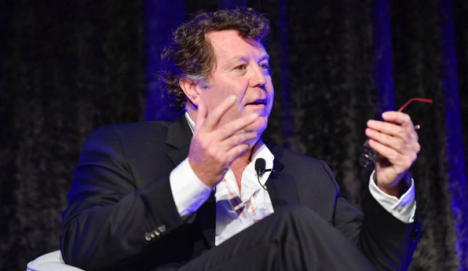Bruce Gordon’s gambit on Nine gives WIN a short term and long term advantage
 Bruce Gordon move to up his stake in Nine Entertainment to 14.95 per cent puts him in prime position when media reforms are passed. But it’s not the only thing driving this investment argues Nic Christensen.
Bruce Gordon move to up his stake in Nine Entertainment to 14.95 per cent puts him in prime position when media reforms are passed. But it’s not the only thing driving this investment argues Nic Christensen.
Say what you want about WIN Corporation’s Bruce Gordon, yesterday’s $182m investment in metro TV network Nine Entertainment has put him centre stage in the media reform discussions.
The Bermuda based billionaire and owner of regional WIN TV Network has previously demonstrated his ability to be an immovable obstacle to media mergers – just ask Network Ten and its potential bidders Discovery and Foxtel.
Yesterday’s investment is significant as it makes Gordon the largest shareholder in both Nine Entertainment Co and Ten Network Holdings.
While it’s important in the longer media reform agenda it’s also worth noting in the short term there are direct benefits for TV network WIN, which is about to renegotiate its long standing affiliation deal with Nine, with it increasingly reliant Nine’s content.
 Gordon’s decision to suddenly raise his stake in the network gives him significant leverage in these negotiations. Before yesterday he would have been more at Nine’s mercy in any affiliate discussions. Remember the master-slave comments made by Southern Cross Austereo boss Grant Blackley last week?
Gordon’s decision to suddenly raise his stake in the network gives him significant leverage in these negotiations. Before yesterday he would have been more at Nine’s mercy in any affiliate discussions. Remember the master-slave comments made by Southern Cross Austereo boss Grant Blackley last week?
This will be particularly the case if Gordon or a representative makes a play for board representation on Nine.
Now to be clear Mumbrella understands that at this stage no such request has been made, but as the largest shareholder in the TV Network he did could easily do so and would arguably have the right to one.
Should Foxtel be allowed to complete its buy in to Ten Gordon is set to lose his representative on a shrunken Ten board, but history shows a WIN representative on the Nine board, whether it be the media mogul or a proxy, will be no shrinking violet on the future of TV network.
All of this comes amid the growing focus on the media reform agenda and the speculation that Prime Minister Turnbull and his communications minister Mitch Fifield will move to abolish the reach rule, which limits broadcasters to reaching 75 per cent of the population and the two out of three rule which limits the type of assets that they can own.
Many of these rules are archaic in the era of the internet a point well demonstrated by Seven West Media which will launch live streaming to 100 per cent of the Australian population in December.
Much to their affiliate Prime Media’s, who pays Seven licence fees for content, chagrin.
Under chair John Hartigan’s Prime, along with Gordon’s WIN and Southern Cross Austereo (SCA) have been 100 per cent focused on mobilising “the bush” on the media reform issue. Really this means scaring the bejesus out of Nationals and rural Liberal MPs and making them pressure the government to act.
Under Abbott this was a no go. Especially under the face of opposition from Rupert Murdoch and Kerry Stokes.
However, Malcolm Turnbull as PM changes this equation and again this brings us back to Bruce Gordon and why he played his hand into Nine.
No TV network has been more strident on the need for media reform to the point where Gordon, amid network infighting, pulled WIN out of industry lobby group FreeTV.
Gordon latest play ensures that he remains under the 15 per cent threshold where his stake in both networks would invite regulatory oversight and investigation by the media watchdog the Australian Communications and Media Authority (ACMA).
However, it is significant because it also ensures that neither Nine nor Ten is likely to move on a merger with a regional network without consulting him.
Many had tipped Nine’s merger dance partner to be Southern Cross Austereo – certainly a tie up between its regional TV and metro radio assets with the metro TV network makes sense. Its CEO Grant Blackley would also be a strong potential successor to CEO David Gyngell should he pull the pin come November as many expect.
But now Gordon will have a strong voice within the company – with or without board representation – perhaps that equation changes.
Certainly the 86-year-old appears 100 per cent focused on ensuring that WIN is not left without its choice of dance partner should the government decide it is intent media reform, with the inevitab;e round of mergers that will bring.
Gordon has made a cool $200m the opening gambit – the question now is really will any of his counterparts Murdoch and Stokes, or the likes of Prime and SCA, be brave enough to follow suit?
Nic Christensen is the deputy editor of Mumbrella.
Related content:





